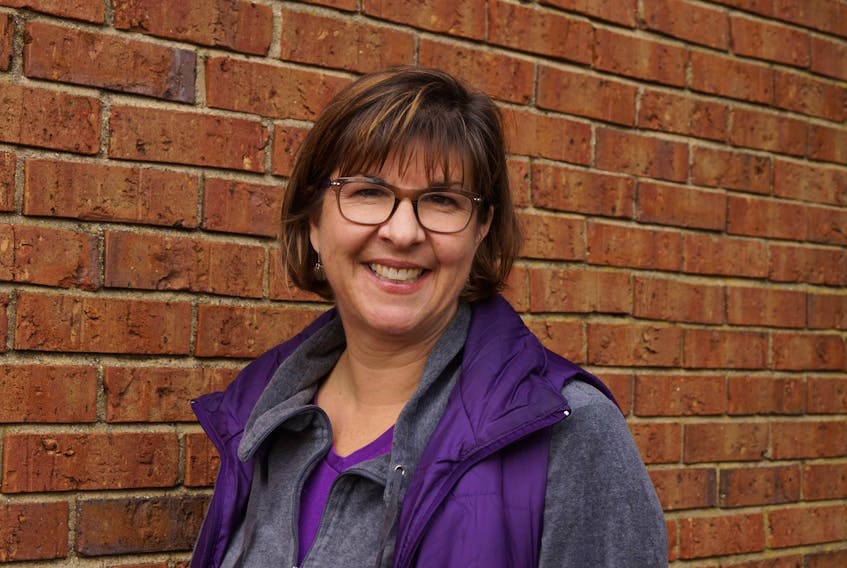ST. JOHN'S, N.L. — Helen Rozwadowski was a student when she first ventured to Newfoundland and Labrador, travelling on a schooner to Bay d'Espoir. She is back in the province this week, but the academic has a lot more knowledge to share.
“That was a long time ago,” she said with a laugh.
A professor of history and maritime studies at the University of Connecticut, Rozwadowski is also the founding director of maritime studies at the American college. She will present the Henrietta Harvey Public Lecture Wednesday night at Memorial University’s Emera Innovation Exchange facility in St. John’s. Her talk is titled “Writing Ocean Histories.”
Helen Rozwadowski: Ocean Histories Henrietta Harvey lecture 2020 Wednesday 12 February 7 pm Signal Hill Campus https://www.mun.ca/history/news.php?id=12977&type=news
Posted by Memorial University History Department on Thursday, February 6, 2020
Rozwadowski has considerable expertise when it comes to assessing the history of human interactions with the ocean. In 2018, she published the book “Vast Expanses: A History of the Oceans.” Rozwadowski has studied the ocean throughout her academic career and as her knowledge of environmental issues grew in tandem with an understanding of the science involved, she came to the conclusion science alone cannot address problems affecting marine life. This, she said, is because of the presence of humans.
“That is something that suggests the wisdom of involving the humanities and social sciences,” Rozwadowski told The Telegram. “I guess I would probably even say I’m sort of a proselytizer for that.”
Looking at an example of a current ocean initiative benefiting from knowledge of the past, Rozwadowski brings up a project in the New York City harbour to rebuild oyster reefs for urban areas. This would conceivably aid the ecosystem and address food security.
“If you are a historian of science and you know more about the history of those projects, you very quickly begin to see that it has to do with developments and restoration ecology that prompted people to start asking not just how can we restore ecosystems, but when we should restore ecosystems. Because they were different at different times in the past, and we shouldn’t assume that restoring them to 10 years ago is enough. That work was undertaken not only by scientists, but by scientists working with historians to find historical sources that could help scientists understand what past ecosystems were like.”
On Wednesday, Feb. 12, the @signalcampus will host Dr. Helen Rozwadowski (@oceanhistories) for Memorial's 2020 Henrietta Harvey lecture, Writing Ocean Histories. Everyone welcome! @memorialhss https://t.co/1Tw4XcclLi
— Memorial University (@MemorialU) February 10, 2020
Rozwadowski took a lot of time to write her book, deciding to expand its scale as she worked her way through it, delving into early hominid species’ use of voyaging and marine resources.
“I had to read very widely in fields that are not my own and approach them from using the methodology of history science, which I do know,” she said.
Wednesday’s talk should appeal to people with an interest in the environment and marine life, or whose academic background may overlap somehow with ocean resources.
"You have so many more people who know the ocean profoundly and in ways that actually I don’t.” — Rozwadowski
“I hope it will be interesting to a lot of people,” said Rozwadowski, who previously spoke at a MUN event in 2015. “One really fun thing about talking to an audience in St. John’s and Newfoundland is that you have a community of people there who know a lot about the ocean and have lived by and with the ocean as a culture for a long time, and it’s really different than talking to an urban audience in a big city somewhere not like that. You have so many more people who know the ocean profoundly and in ways that actually I don’t.”
Wednesday’s free lecture starts at 7 p.m. in the main conference hall (B2007). Free parking is available in areas 200 and 201. The lecture is sponsored by the department of sociology, the department of classics, the department of history and the Maritime Studies Research Unit.
Twitter: @CBNAndrew









